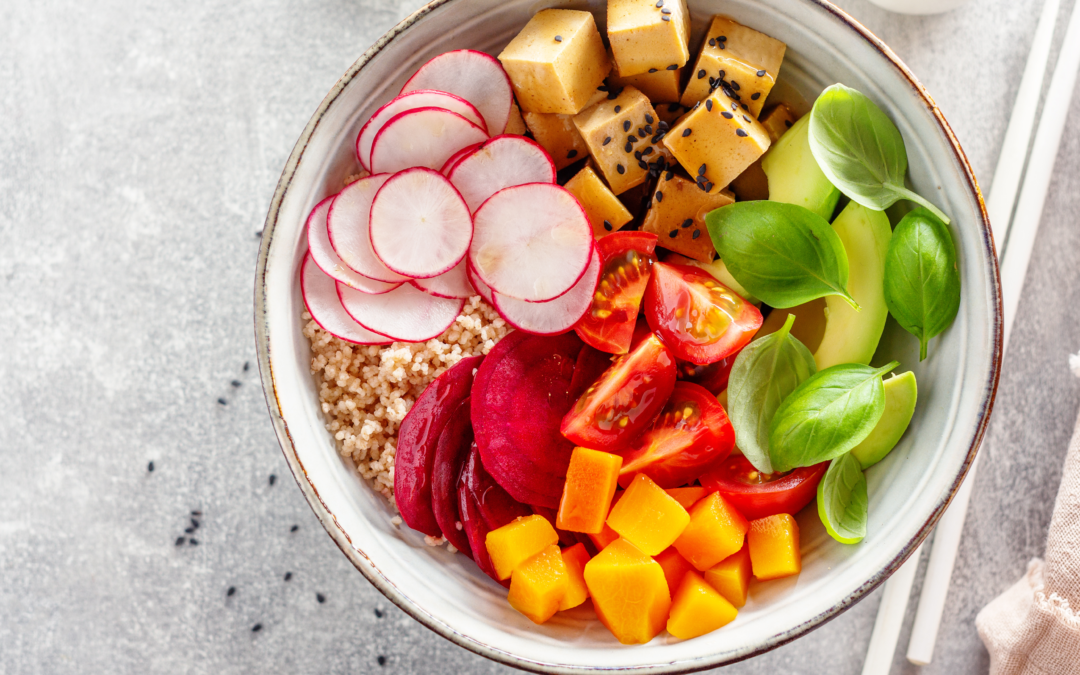Protein plays a crucial role in building and repairing tissues, supporting immune function, and maintaining overall health. While many people associate protein with animal products, it is entirely possible to meet your protein needs as a vegan. With careful planning and a variety of plant-based protein sources, you can thrive on a vegan diet while ensuring optimal protein intake. In this blog post, we will explore practical tips and nutrient-rich plant-based foods to help you get enough protein as a vegan.
Understanding Protein Needs
The recommended daily protein intake varies based on factors such as age, sex, activity level, and overall health. As a general guideline, the average adult requires around 0.8 grams of protein per kilogram of body weight. However, athletes, pregnant or breastfeeding individuals, and those recovering from illness or injury may need higher protein intake.
Plant-Based Protein Sources
1. Legumes and Pulses:
Legumes, such as lentils, chickpeas, black beans, and kidney beans, are excellent sources of plant-based protein. They are also rich in fiber, vitamins, and minerals. Incorporate them into your meals by making bean stews, lentil soups, or adding them to salads, stir-fries, or grain bowls.
2. Tofu and Tempeh:
Tofu and tempeh, made from soybeans, are versatile and protein-dense options. Tofu is an excellent addition to stir-fries, scrambles, or baked dishes, while tempeh can be marinated and grilled as a meat substitute or crumbled into sauces and stews.
3. Quinoa and Other Grains:
Quinoa is a complete protein, meaning it contains all essential amino acids. Other grains like amaranth, buckwheat, and whole wheat couscous also offer decent protein content. These grains can be used as a base for salads, pilafs, or side dishes to complement your protein sources.
4. Nuts and Seeds:
Nuts and seeds, such as almonds, walnuts, chia seeds, and hemp seeds, provide protein, healthy fats, and additional nutrients. Sprinkle them on oatmeal, add them to smoothies, or use them as toppings for salads and vegetable dishes.
5. Seitan and Wheat Gluten:
Seitan, made from wheat gluten, is a high-protein meat substitute. It has a chewy texture and absorbs flavors well. Use seitan in stir-fries, sandwiches, or as a filling for wraps.
6. Plant-Based Protein Powders:
Protein powders derived from plants, such as pea protein, rice protein, or hemp protein, can be convenient options for boosting protein intake. Blend them into smoothies or incorporate them into baked goods for an extra protein punch.
Smart Meal Planning
To ensure you meet your protein needs as a vegan, consider the following strategies:
1. Include Protein at Each Meal:
Aim to incorporate a source of protein in every meal. For example, pair whole-grain toast with nut butter for breakfast, top a salad with chickpeas for lunch, and enjoy a tofu stir-fry with quinoa for dinner.
2. Combine Complementary Proteins:
Some plant-based protein sources lack specific essential amino acids. However, by combining complementary protein sources, you can ensure a complete amino acid profile. For example, pairing legumes with whole grains or nuts and seeds with whole grains can create complete proteins.
3. Optimize Snacks:
Choose protein-rich snacks such as edamame, roasted chickpeas, or a handful of nuts to keep your protein intake balanced throughout the day.
4. Experiment with Plant-Based Recipes:
Explore a wide range of vegan recipes that showcase protein-rich ingredients. Get creative with plant-based burgers, tacos, curries, and pasta dishes that feature legumes, tofu, or tempeh as the main protein source.
5. Consider Nutrient Density:
Select protein sources that offer additional nutrients. For example, choose lentils over processed meat substitutes, as lentils provide fiber, folate, and iron.
Getting enough protein as a vegan is entirely feasible with proper planning and a diverse selection of plant-based protein sources. By incorporating legumes, tofu, tempeh, whole grains, nuts, seeds, and plant-based protein powders into your meals, you can meet your protein needs while enjoying a balanced and nutrient-rich diet. If you need help adjusting your diet, reach out to our master health educator for help!



Recent Comments